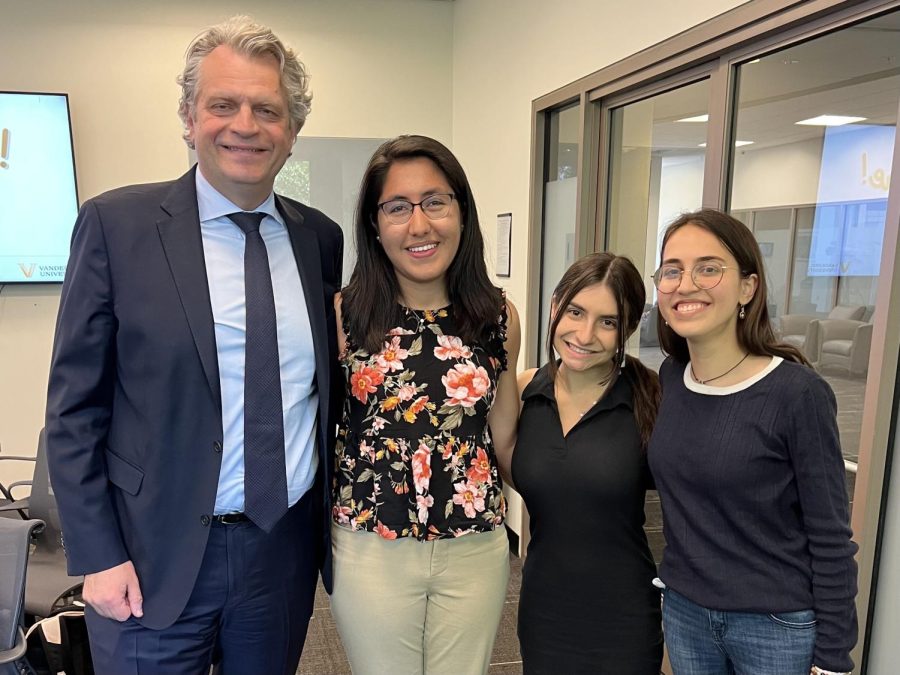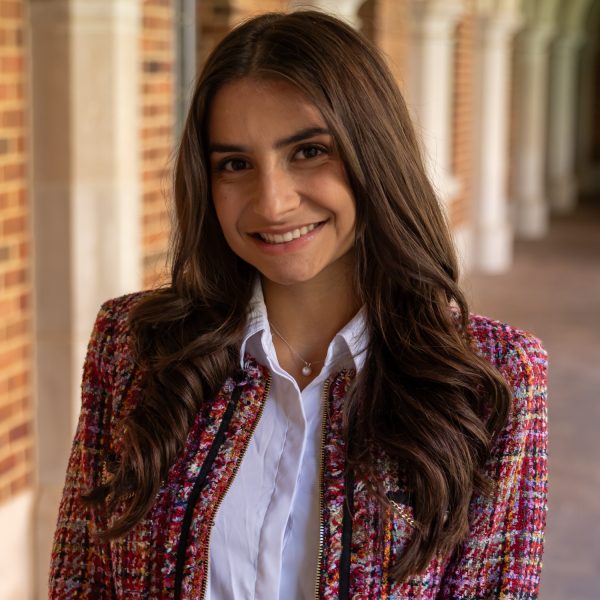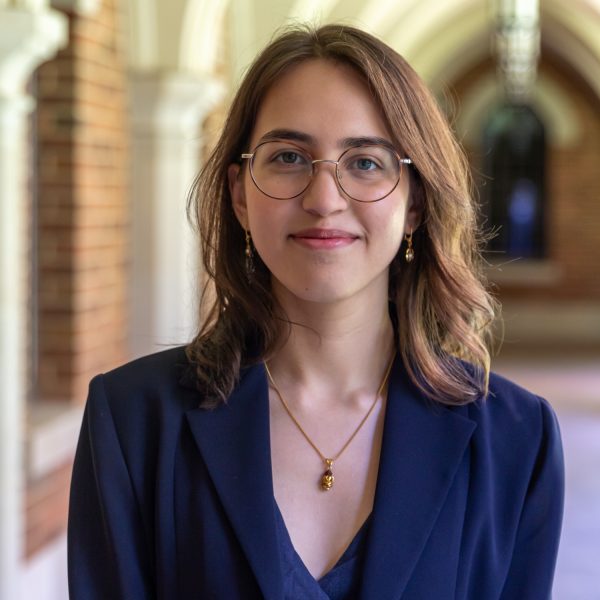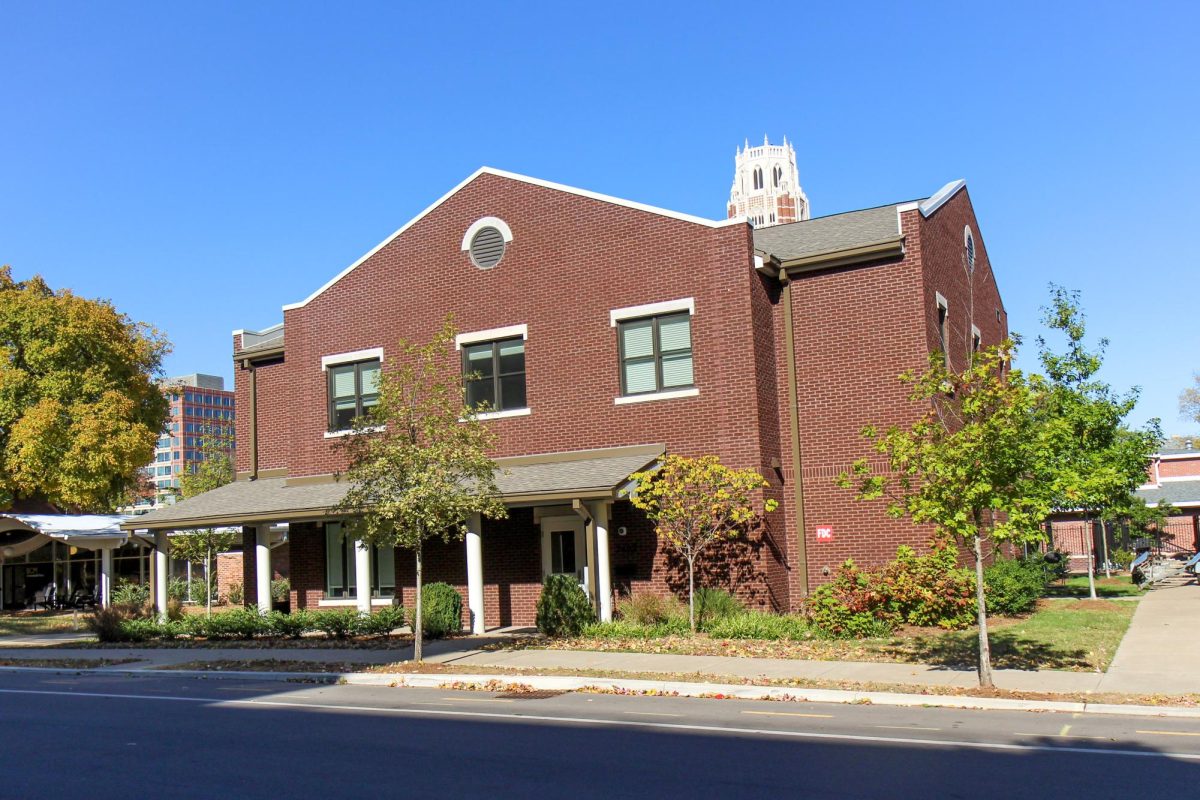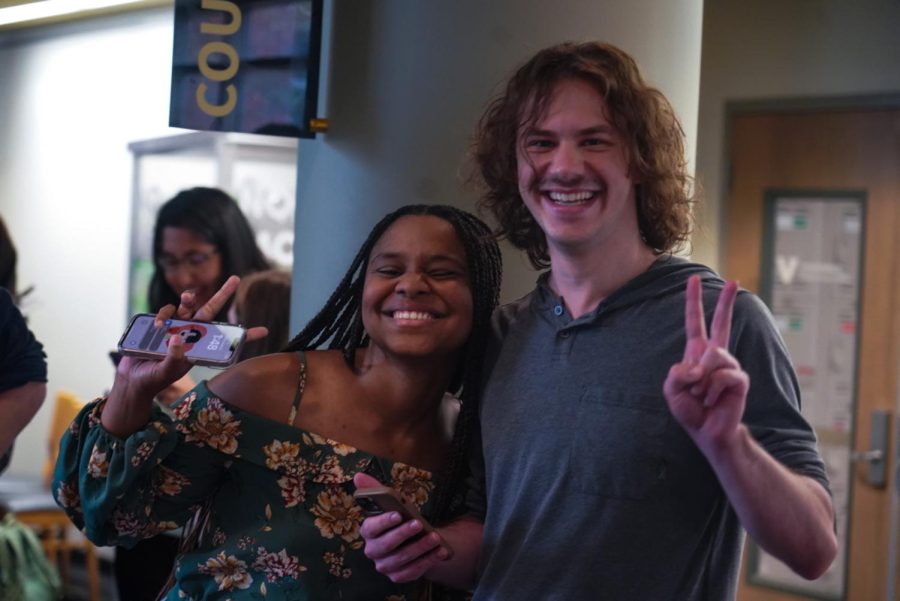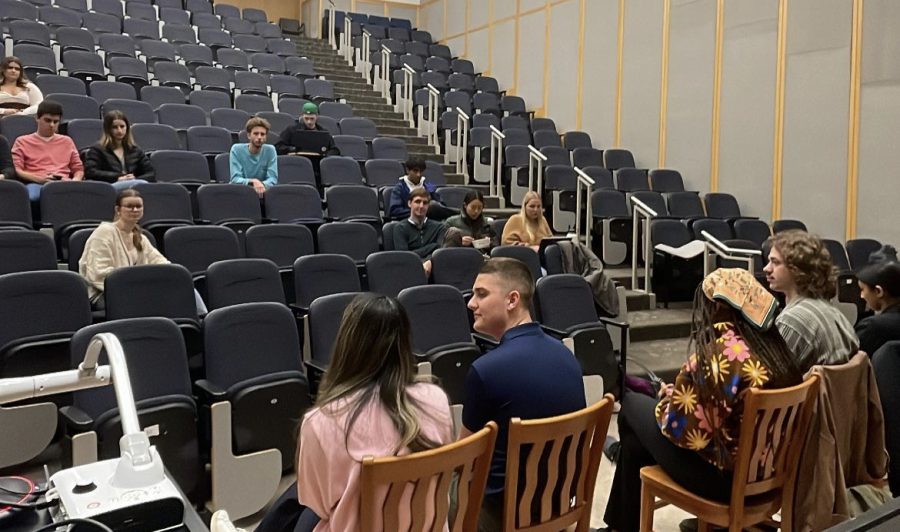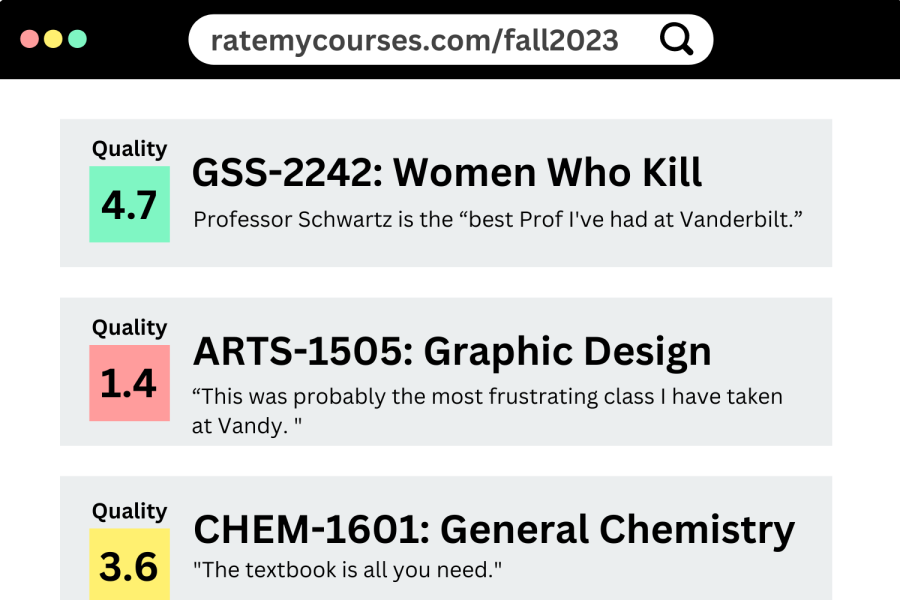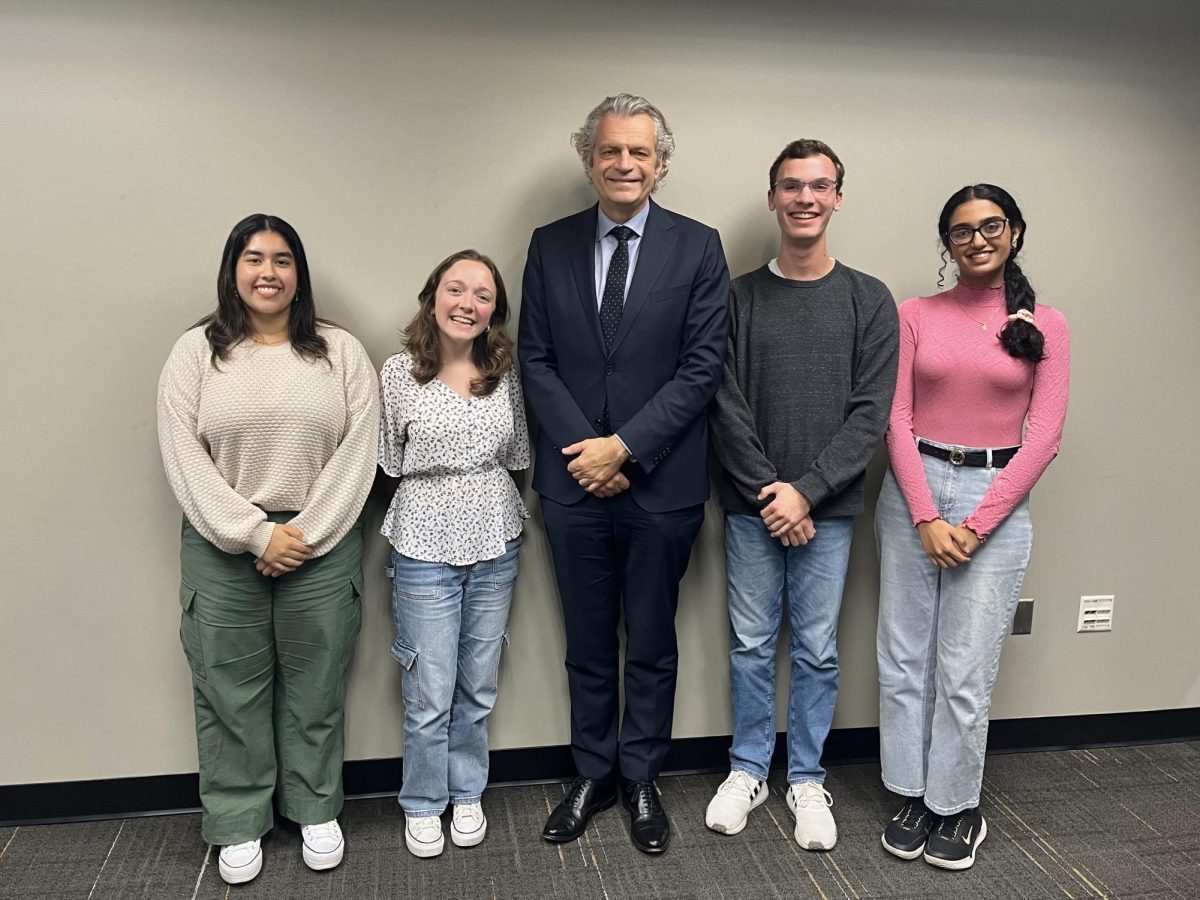The Hustler met with Chancellor Daniel Diermeier for the last debrief of the 2022-23 academic year on April 19. We asked Diermeier about his thoughts on student activism and local politics following the Covenant School shooting, academic changes, construction plans and free speech on campus after a Vanderbilt College Republicans debate on gender-affirming care for minors.
Diermeier also shared his plans for the summer, his worst final exam story and his typical Chipotle order.
Politics and advocacy
The Hustler: The campus community has been deeply affected by the Covenant School Shooting. What is your message to students who don’t feel safe on campus, in Nashville and elsewhere, after this tragedy?
Diermeier: This was the most horrible event, and we were deeply saddened by it. And our connections with The Covenant School go deep. They’re part of our community, their head of school was an alumna of ours. So what happened was there was the initial shock, and then we just discovered more and more connections that we had with the school. It was a very sad, really horrifying event.
And I think the first thing that we have to do is to come together as a community and support each other. There were student support services, but I think it was also important for us to just spend some time together. We had that beautiful ceremony a week later because you just have to process that together.
The second question was about campus safety. We have great confidence in Vanderbilt University Public Safety, but we had also decided already before that, after another horrible shooting in Michigan State, to assess how we can do better. We are in the process of setting this up. It will be something that we’ll be doing over the summer because it’s important for us that we always look into additional things that we can improve, and that certainly includes our public safety and protecting our students and every member of our community. We haven’t done it yet, but my sense is this is going to be mostly kind of a campus safety focus, but we’ll think about the broader aspect as well.
A number of students have either organized or participated in walkouts, rallies and demonstrations in favor of gun violence legislation. What actions — particularly legislative actions — do you think should be taken to address the issue of gun violence?
As a university, we’re committed to addressing society’s most pressing issues. The way we do this is through research and education — by providing platforms and discussions and by finding new solutions that then can be used in our community or communities more generally. We have some of the world’s experts here that are doing terrific research on causes and solutions to mass shootings and gun violence. We need to do more to elevate their platform and to provide additional resources so that their voices are out there and can be heard. That’s part of what they’re doing here, but we need to do even more to connect them so that they can testify, be part of discussions, give media interviews or that the type of articles that they write become the broadest possible sense. How can we provide an even more impactful platform? It’s always a question about exactly how you do it in a particular context.
During COVID-19, Dr. William Schaffner was the most trusted and most widely featured voice on COVID-19. He became the expert that the whole country looked to for advice, and that’s the powerful impact that our faculty can have — and, of course, our students do that in their own realm as well. The more we can support our students in that and the more we can do this with our policy experts and researchers, the more impact we can have.
Is the university’s Federal Relations Office — which is involved in lobbying — leveraging any of its power to advocate for gun safety legislation?
We have a very good, effective government relations office that works at the community, city, state and federal levels. And so they’re involved with whatever policy discussions that we have, that affect the university directly and want to make sure that we have a positive impact on our community. It’s rare that they are advocating for a particular kind of policy proposal, but they certainly are in conversations that will provide both access to experts and then, if it affects the university, give our own opinion on that as well.
What impact do you think the expulsion of Rep. Justin Jones and Rep. Justin Pearson will have on political unity and democracy in Tennessee?
I think it’s really important that all voices are heard and all arguments are considered so that we as a community can have the best outcomes. That’s as true in research and innovation as it is in public discourse and in a democracy. This is a core value that we are strongly committed to.
In this particular case, we had a pop-up event discussing it just a couple of days after it happened. The Future of Free Speech Project, which was just launched with Justitia — a nonpartisan think tank based in Copenhagen, Denmark, that opened its first office in the U.S. at Vanderbilt. There was a lot of discussion and debate on what it means for democracy and how to think about free speech. These events were just another example for us to double down to make sure that we have met our commitment to public discourse, both inside and outside the university.
Vanderbilt College Republicans recently held a debate on whether minors should be allowed to receive gender-affirming surgery. Students protested the event, stating that transgender lives and experiences are “not up for debate.” VCR defended its event by referencing freedom of speech and debate. How does Vanderbilt work to allow free speech while also preventing speech that could be considered harmful/hateful to others?
This is an important topic, and I think there are two dimensions here. One dimension is our commitment to having a diverse community of students, faculty and staff and creating an environment where they all feel a sense of belonging. We live in a world — in an age — right now where there repeatedly are events that are really difficult for a particular student group, causing them to feel that their sense of belonging needs to be reaffirmed or strengthened. We certainly had this with our African American students after the George Floyd incident and harassment and violence against Asian Americans and Asians, as well as given that antisemitism across the country has been on the rise. Now, it’s our LGBTQ+ students. We have to really have to make sure that they feel supported as full members of the Vanderbilt community, and I think we’ve done that.
There’s a separate question of debates on policy. I think one wants to be careful when saying that certain things are not up for debate. That’s a strong statement and needs to be backed up. In this particular case, we’re totally committed to supporting members of our community, but we still need to be able to have discussions on policies and the whole question of transgender care for minors. It’s super polarized right now, but from a clinical care point of view to a policy point of view, our faculty are working on this. What’s the right level of care? How do you do it? What are the risks? What are the trade-offs? There are significant debates in the medical and in the public health community on that. There’s broad support for providing gender-affirming care among the American Pediatric Association. In Europe, it’s not so supported, and there are much more restrictions on that. There is a debate on that, and that debate needs to be based on the facts and needs to be based on seriously looking at the complexity of these issues.
I would encourage the students that were very upset by this to separate these two aspects. One of them is that we’re fully committed to members of our community and supporting them, but then there are — like with so many other issues — complexity and subtleties on exactly how clinical care should be structured, how and what should be done and consent. These topics are already debated in the medical and public health community; we should be able to have that on campus, given our commitment to engage in important policy issues of the day. I think one needs to be careful with the statement that certain things are not up for debate, and one needs to separate respecting people as individuals and their differences from having a policy debate, even if one passionately disagrees with the position that people have.
Is Vanderbilt working to leverage its resources to help students advocate for their beliefs, as suggested by outgoing VSG VP Ari Sasson, a junior, in an op-ed in The Hustler?
We want to do it the right way. We were thinking about having workshops or something along those lines that are specifically targeted to students. I think that would involve both communications and government relations so that there’s a little bit more of an understanding of how people — including students — can be part of advocacy and the policy process.
The only question is: When are we going to do it? Right now everybody’s busy with exams and other things and so we started specific steps already, but in terms of exactly how we’re going to structure the program and when it’s going to take place — we’re working on that right now, but it’s going to take a couple of weeks.
Do you think that some families might be apprehensive about attending a university in Tennessee due to the state’s political climate (particularly in regard to laws about abortion, LGBTQ+ rights, firearms, etc.)? If so, how is the university addressing those concerns?
This goes back to the core values that I’ve been talking about. We are totally committed to having a diverse class of students and creating an environment where everybody is included, has a sense of belonging and can realize their full potential. We do lots of different things to do that — from the freshman Commons to how we engage with our students throughout their journey here, to our career services and so forth.
We are not immune from the political environment where we’re operating. Our context is a specific one and has its upsides and its downsides. Our job is to look at that environment, and as much as we can, make sure that we are creating a campus environment that allows our students to thrive. Those challenges change over time. We’ve had a rough two weeks in the city and in Tennessee, and our job then is to take that environment and make sure that we are continuing with providing the type of environments for our students where they can thrive. I think we’ve been able to do that.
That’s the way we think about it, there’s always going to be changes in context; they are going to be challenges. Sometimes things are great. Sometimes they’re not, but our job is how do we create an environment for our community where everybody can thrive.
Academics
This year, Vanderbilt’s admissions rates continued to decline. What message do you have to the incoming Class of 2027 who received their admissions last month?
Well, first of all, congratulations! We’re happy to have you join our community here at Vanderbilt.
I think it’s always important for students when they are thinking about where to go to college to pick the university that is a great fit for them. I think sometimes a mistake that students make is that they pay attention to rankings, which have their own problems. I think that’s a big mistake because there are significant differences in the culture and the approach of the great universities of this country. And it’s very, very important that students are aware of that and then make their choices accordingly.
Our Admissions Office tries very hard to make sure that they’re doing a good job with making that known and with welcoming students to Vanderbilt who fit with that mindset. And then we hope that the students on the other side do the same thing. We think that what makes Vanderbilt special is that it’s an academically rigorous school but also really one that pays a lot of attention to students so that every member of our community can realize their full potential as full human beings. That includes life as a student community and the ability to have leadership experience and grow in a way that isn’t just limited to the type of activities that happen in a classroom setting. We also believe that everybody grows best in a community that is supportive and challenging. If that’s what you want, we’re a great place!
It’s really important that students who are still thinking about Vanderbilt are thinking about what it is that they want. We hope that it is Vanderbilt! We’re very pleased that the demand to go to Vanderbilt has been dramatically increasing over the last few years. And we’re also pleased that we are more and more becoming a destination of choice for people. We see this in our early decision applications and yield — the number of accepted students who come to Vanderbilt. It was wonderful to see and talk to so many students and hear them say my dream has been to go to Vanderbilt. I couldn’t be happier that I can make that dream a reality. That’s very powerful.
From upcoming changes to the AXLE requirements to the addition of the Spanish for the Professions minor, there have been a number of curricular adjustments recently. Are there any other changes you look forward to or that are in the works? What new focuses should a Vanderbilt education emphasize?
We will always look at our educational offerings and see how we can do it better. That’s often in response to the type of needs that we either hear from students or we just see in the world. These processes are considered usually as part of their own kind of curricular process, and then they’re carefully considered and implemented under discussion. The way you want to think about it is this is a living thing. The curriculum is never done. It’s never fixed. It’s always adjusting. There are lots of initiatives going on right now, and the Spanish for the Professions minor is an example of that. We have the climate studies major as another example which was launched with great success. There is going to be new majors and minors; things are going to be restructured — that’s just the nature of the game.
Specifically, this minor comes after the Spanish graduate program was dissolved. How does the minor play into Vanderbilt’s overall focus on international culture?
Undergraduate and Ph.D. curriculums have their own goals and purposes. When you think about undergraduate education, its particular goal is the ability to have a second language and go deeper into cultures. Ph.D. education is really about educating the next generation of scholars. That’s a long commitment for doctoral students. It’s very important that universities focus on those areas where you can, but not everybody can do everything. We can provide a level of thoughtful education that can have an impact on future scholarship, and those discussions are happening in departments and schools all the time.
They have different purposes and criteria. They also are fluid; you will see the creation of cross-disciplinary, doctoral programs. These things tend to be very specific and with a particular purpose in mind. The purposes of undergraduate education and doctoral education are different and need to be considered separately.
Could you touch upon the process of creating a minor?
It depends a little bit on whether it involves one school or multiple schools, but there’s a whole review process, then things have to be accepted and deans get involved. There’s a design process and then an approval process. I think there is an overall tendency toward creating minors because what we’re noticing is that our students have varied interests, and I think you’ll see this in fields that have this kind of cross-disciplinary nature to them like HOD, MHS and climate studies. We will always do economics and history and mathematics; that won’t go away. But there is a second wave, a second type of majors and minors that combine different disciplines, and they’re more defined by a particular area of interest rather than a particular methodology or way of thinking. Many of our students, for example, want to develop some skills and competencies and data analysis, but they don’t necessarily want to be computer science majors. So having minors really helps with that, and I think it provides more flexibility.
Campus life
The student body recently elected juniors Samuel Sliman and Kendelle Grubbs to be the next VSG president and vice president after a runoff election. What advice do you have for these incoming student leaders? What are your thoughts about their satirical campaign and plans to dissolve VSG?
First of all, congratulations on your election! My most important message is that the VSG is a very important institution at Vanderbilt. It’s a big responsibility to be president or vice president of VSG. In the last year, we’ve had tremendous relationships with VSG, and that’s had really good outcomes and improvements for the student community. That was based on the relationship of trust and partnership and a sense of how we focus on the type of issues that make life at Vanderbilt better. I would hope and encourage the new VSG leadership to take that responsibility seriously. It’s fine to have humor and satire in a campaign, but now you’re in office, and you’ve been entrusted with that by the student community — and that’s a big deal. We look forward to partnering with them, and I would encourage them to have lots of dialogue in the student community to understand the issues that are front and center for students right now and then have great conversations with us so we can make sure that everyone in our community is well supported.
The university will be breaking ground on new construction projects in the next year — including the Frist Athletic Village and the redesigned Highland Quad. How do you envision these projects fitting into the current architectural style of the buildings on campus? Also, has a name been chosen for Residential College C yet?
So there’s no name for Residential College C yet. It’s such a great naming opportunity! We don’t have a benefactor for it yet.
Vanderbilt campus is beautiful; it has a real campus-like feel with a beautiful arboretum in the city. It’s also a campus of neighborhoods, and the neighborhoods all have a distinct feel and architectural style. For example, the residential colleges along West End — the newer ones — are collegiate Gothic. And that is a different style than what you have at Peabody College, which is more neoclassical architecture. And they’re both beautiful in their own way. It’s important to us, whenever we think about architectural style, that these things fit. If you build next to the stadium, it will be a different style, like the Frist Athletic Village. It combines very different things to be a bold statement of support for the band, Athletics and fans. Residential colleges are totally different because they are about creating a sense of community among the students and creating an environment where they feel a sense of being a home away from home among the smaller communities with which to learn. They can connect to very different, very different purposes.
The new building where Highland Quad currently is will require some careful thought to match the style of its area. We’re further along on Vandy United than we are on Highland, but not much. That’s going to be announced very soon.
You became Vanderbilt’s ninth chancellor in 2020, joining the Vanderbilt community around the same time as the Class of 2024 — of which we are all apart. As we prepare for our final undergraduate year here at Vanderbilt, what message do you have for our class? What emotions are you feeling about having your first class at Vanderbilt near our graduation?
That’s very true — it’s a special class for me. Commencement is always such a special moment, and I really encourage the students to fully enjoy that moment of looking back on the Vanderbilt experience but also looking forward. These were difficult times, these were difficult years. They are a little bit like my “heroic generation” because we asked a lot of our students in 2020 and 2021 to really step up during the COVID-19 years, and they did awesome. I’m always so proud of looking back on how we as a community came together. It involved staff doing countless hours and faculty doing multiple different versions of their class and being flexible. It involved students doing the right thing when we asked them to. That was a powerful experience for us and for me personally as well.
The last thing I would say is Vanderbilt for life. This is a community that you decided to join when you signed on the dotted line of the acceptance letter. Be involved, be active — we love to have ongoing relationships and connections with our graduates. It’s a wonderful, vibrant community, and there’s no better time to spark your life as a Vanderbilt alum than during our sesquicentennial.
Editor’s picks
What is your favorite place to get lunch near campus?
My favorite lunch place is Chipotle — it’s easy and quick. I get the burrito bowl, and my favorite thing is pollo asado, but they don’t always have it. I don’t know why it’s so popular, but if they don’t have it, I have chicken and two types of salsa: pico de gallo and green salsa.
Do you prefer final exams or final papers and why?
I think I prefer papers because I love the opportunity to be a little bit more engaged, and there’s always stress about final exams that I’m not sure I always loved.
My studying plan was always to be well done with my studies in advance so that I could have a nice relaxing night before. It never happened.
My most horrifying final exam story was when I was in graduate school, and I was studying game theory. I had a qualifying exam, which basically tells you that you can teach in this area. The way they did it was to give you a week to work on take-home problems. They were really hard; I worked crazy hours every day. The last problem was just unsolvable. After two sleepless nights, I ended my exam and left for the holiday break. I visited my parents in Germany, and I was sure I failed and would be kicked out of the program. The whole Christmas break was just torture. I came back, and I was totally expecting to be done. My dream of becoming a faculty member is over. My faculty supervisor said to me, ‘Hey, how are you doing? How was your break?’ I told him it was awful and that the exam was so hard. And he says ‘We wanted to give you a problem that we challenge you. So we gave you a problem that was unsolvable, and we wanted to see what you guys did with it.’ That was my worst exam experience; hard to top.
What are you most excited about this summer?
Summer has a little different rhythm. First, it allows me to travel, to see alums and so forth. Second, it’s very nice to have a couple of months where I and my team can think a little bit more long-term and be more strategic.

